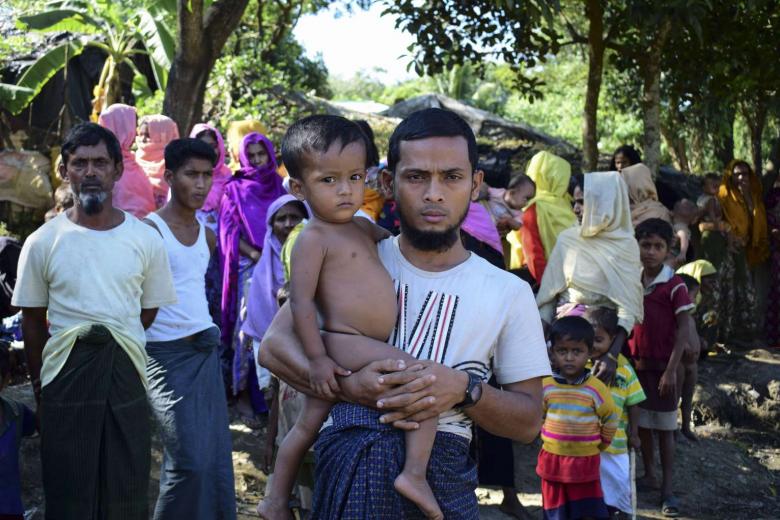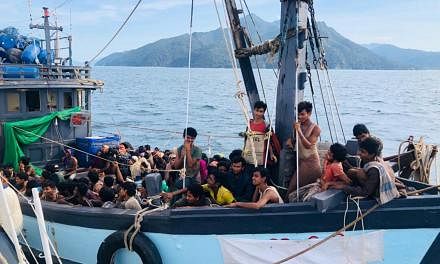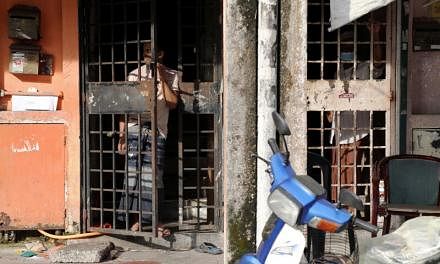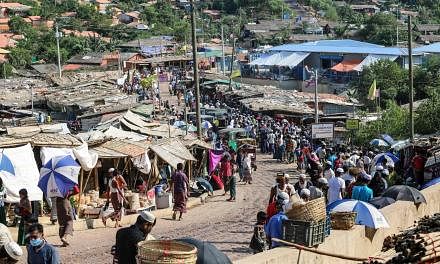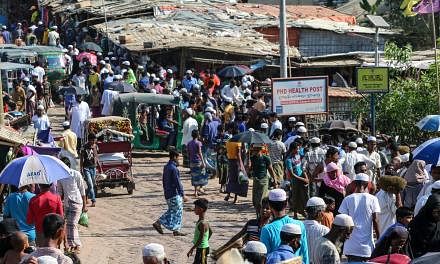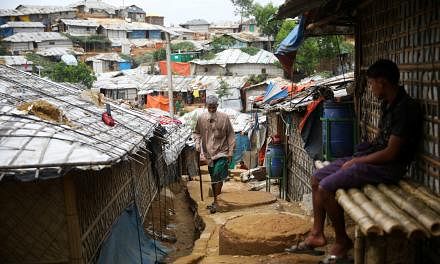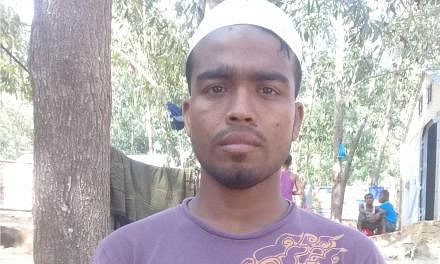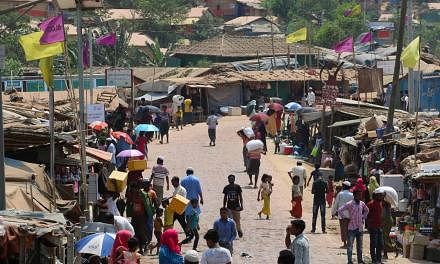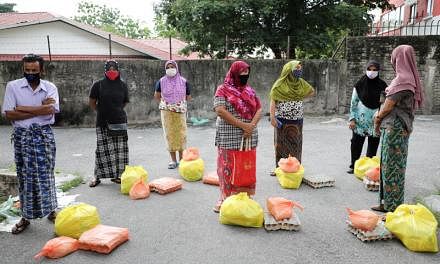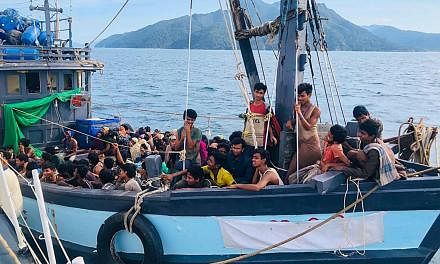This article was first published on Nov 25, 2016 and updated on Sept 6, 2017
YANGON - Nearly 125,000 Rohingya Muslims have fled the northern part of Rakhine state into Bangladesh since Aug 25, when Rohingya insurgents attacked dozens of police posts and an army base.
The ensuing clashes and a military counter- offensive have killed at least 400 people and triggered the exodus of villagers to Bangladesh.
Myanmar says its security forces are fighting a legitimate campaign against "terrorists" responsible for a string of attacks on police posts and the army since last October.
Buddhist-majority Myanmar's roughly 1.1 million Rohingya Muslims have long complained of persecution.
Here are five things to know about the Rohingya Muslims:
1. They are stateless and described by UN as the most persecuted in the world
The Rohingya Muslims are not officially recognised as an ethnic group, partly owing to a 1982 law stipulating that minorities must prove they lived in Myanmar prior to 1823 - before the first Anglo-Burmese war - to obtain nationality.

Using a dialect similar to that spoken in Chittagong in south-east Bangladesh, the Sunni Muslims are loathed by many in majority Buddhist Myanmar who see them as illegal immigrants and call them "Bengali" - even though many have lived in Myanmar for generations.
Most live in impoverished western Rakhine state, but are denied citizenship and smothered by restrictions on movement and work.
2. Nearly 125,000 Rohingyas have fled to Bangladesh since Aug 25
Nearly 125,000 refugees, mostly Rohingya Muslims, have entered Bangladesh since the upsurge in violence in neighbouring Myanmar on Aug 25, the United Nations said on Tuesday (Sept 5).
The latest estimate of the number of people who have crossed the border into Bangladesh since Aug 25, based on calculations by United Nations workers on the Bangladeshi side, is 123,600.
That takes to about 210,000 the number of Rohingya who have sought refuge in Bangladesh since October, when Rohingya insurgents staged much smaller attacks on security posts, triggering a major Myanmar army counteroffensive and sending about 87,000 people fleeing into Bangladesh.
There are around 300,000 Rohingya already living in Bangladesh's southern coastal district bordering Myanmar, the vast majority of whom have fled Myanmar in recent decades.

Bangladesh recognises only a small portion as refugees and regularly turns back those trying to cross the border.
3. The recent violence is the worst Rakhine has witnessed in years
The latest unrest broke out when a Rohingya militant group launched a series of coordinated ambushes on Myanmar security posts in response to what it said was a fresh crackdown.
On Monday (Sept 4), the office of Myanmar's de facto leader Aung San Suu Kyi said the military had fought 90 separate clashes with Rohingya militants since the ambushes.
In a statement, it said that more than 2,600 homes had been destroyed in Rohingya villages and 138 houses had been destroyed in non-Muslim villages - blaming the fires and other damage entirely on the militants.
Human rights monitors and Rohingya fleeing to neighbouring Bangladesh say the Myanmar army is trying to force the Rohingya out with a campaign of arson and killings.
The UN has said Myanmar's army may have committed ethnic cleansing in its response to the latest unrest.
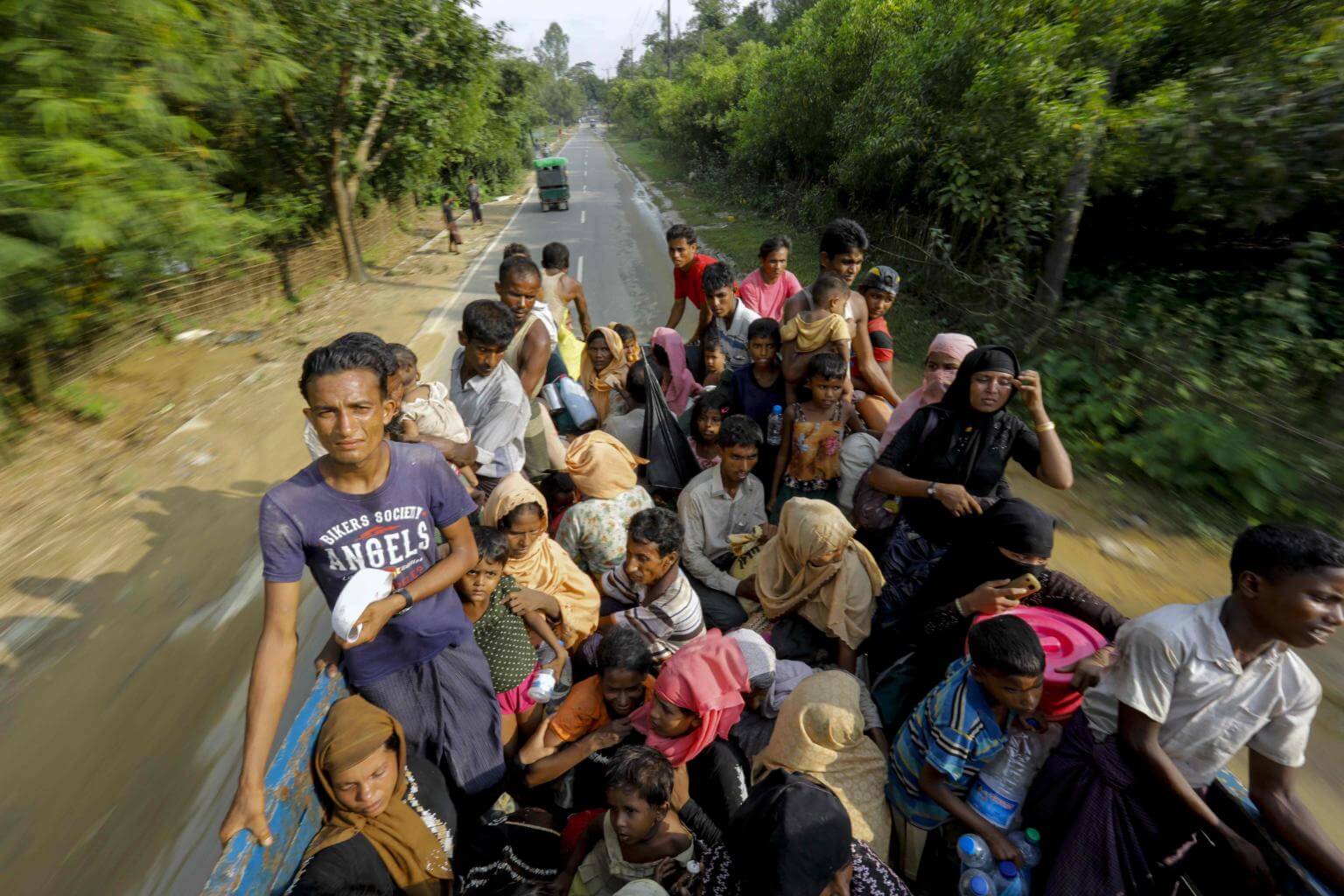
A border ambush had sparked the October crackdown, when Myanmar troops poured into Rakhine in response to coordinated attacks on three border posts on Oct 9 that killed nine police officers.
The government said the attacks amount to an insurgency and accused a previously unknown Pakistani Taleban-trained militant of leading the attacks and rallying hundreds of disgruntled Rohingya to his cause.
Rohingya residents and human rights groups accused the military and border guard forces of raping Rohingya women, torching houses and killing civilians during operations there. But the Myanmar government and military denied the accusations.
4. Aung San Suu Kyi criticised for her near silence on the Rohingyas
Ms Suu Kyi has come under increasing fire over her perceived unwillingness to speak out against the treatment of the Rohingya or chastise the military.
A former political prisoner of Myanmar's junta, she has made no public comment since the latest fighting broke out on Aug 25.
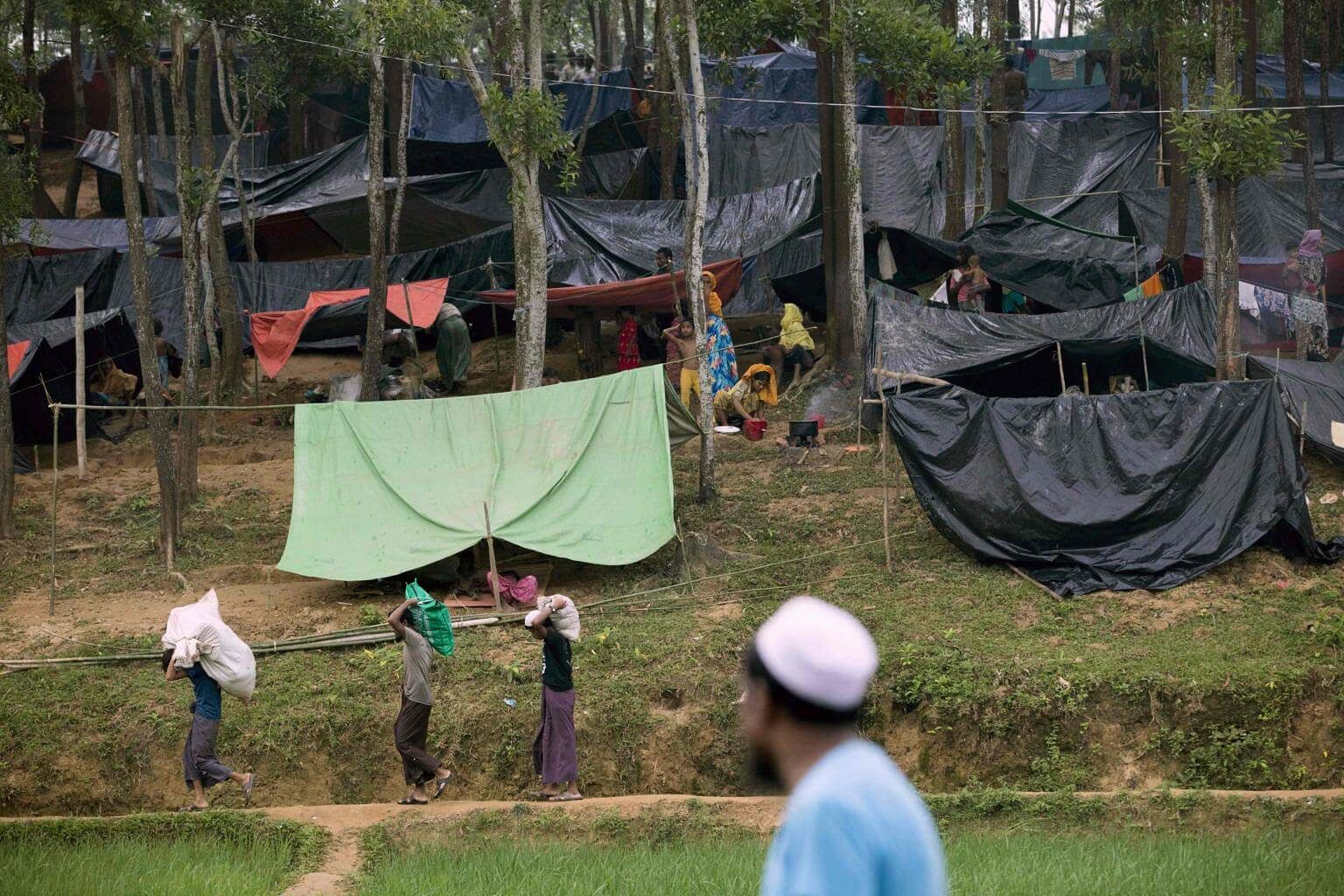
In October last year, during on a trip to Japan, the Nobel Peace Prize laureate vowed a thorough investigation into the then violence but shied away from criticising the military, who controls all security matters. She is also hampered by the politically incendiary nature of the issue in Myanmar.
Ms Suu Kyi has for years been feted in the West for her role as a champion of democracy during years of military rule and house arrest, and her landslide election win in 2015 on a platform of reform was widely hailed. But the current crisis has renewed international criticism that she has done too little to alleviate the plight of the Rohingya minority.
5. Asian and Western nations are concerned with the violence
There have been a number of protests against Myanmar's treatment of Rohingya Muslims in Indonesia, which has the world's largest population of Muslims, and the Malaysian capital Kuala Lumpur.
Indonesian police have pledged to bar Islamist groups from staging a rally on Friday (Sept 8) at the Borobudur Buddhist temple in central Java to protest against the persecution of Myanmar's Rohingya Muslims.
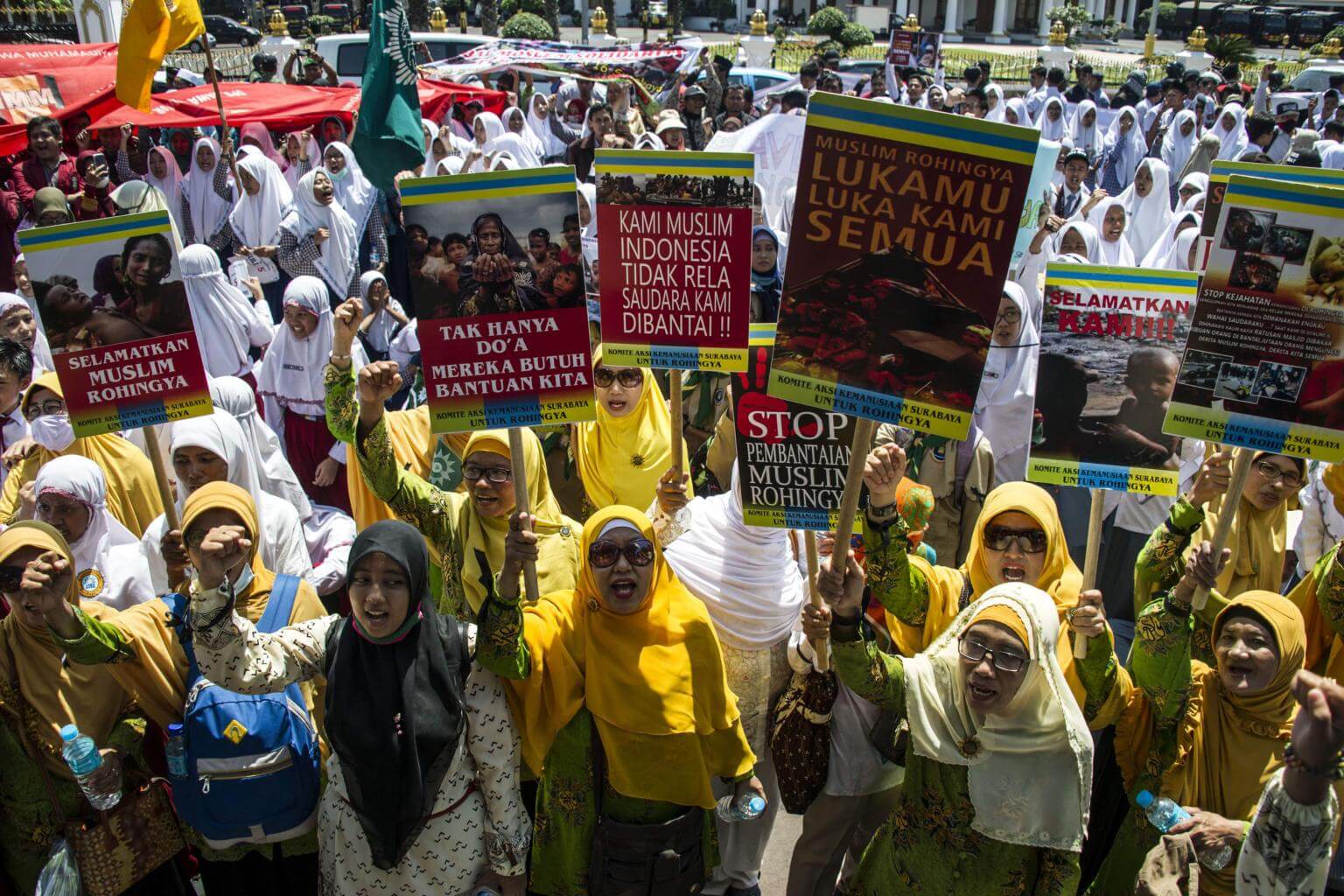
Indonesian foreign minister Retno Marsudi met the Nobel Peace Prize laureate and Myanmar army chief Min Aung Hlaing on Monday (Sept 4) to call on Myanmar to halt the bloodshed.
Malaysia on Tuesday (Sept 5) summoned Myanmar's ambassador to express displeasure over violence in Rakhine. Malaysian Foreign Minister Anifah Aman said the latest incidents of violence showed that the Myanmar government had made "little, if any" progress in finding a peaceful solution to problems facing the Rohingya minority, most of whom live in the northwest Myanmar state near the Bangladeshi border.
Pakistani Foreign Minister Khawaja Muhammad Asif expressed"deep anguish at the ongoing violence against the Rohingya Muslims" and urged the Organisation of Islamic Cooperation to take "immediate and effective action to bring an end to all human-rights violations against innocent and unarmed Rohingya Muslim population".
Pakistan is home to a large Rohingya community.
Malala Yousafzai, the youngest winner of the Nobel Peace Prize, on Monday (Sept 4) called on Suu Kyi to condemn the "shameful"treatment of the Rohingya, saying "the world is waiting" for her to speak out.
SOURCE: AFP, REUTERS

